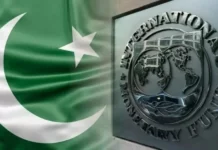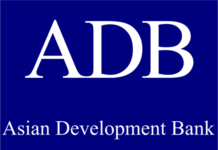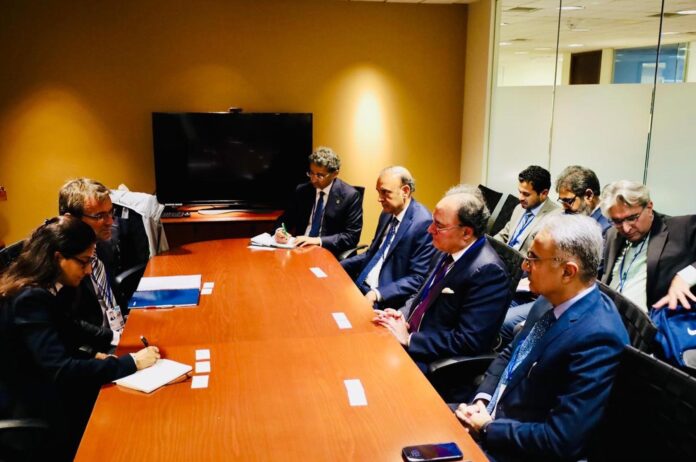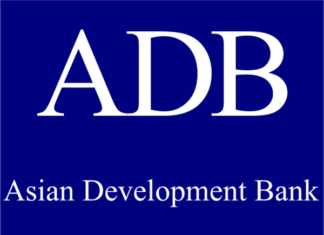Federal Minister for Finance and Revenue Muhammad Aurangzeb participated in a panel discussion titled “AgriConnect: Farms, Firms, and Finance for Jobs” organized by the World Bank Group on the sidelines of the IMF and World Bank Annual Meetings in Washington.
The session brought together global policymakers and experts including World Bank President Ajay Banga, Ukraine’s Finance Minister Sergii Marchenko, and Guinea’s Agriculture Minister Mariama Cire Sylla. The discussion centered on strengthening family farms, which account for nearly half a billion smallholders producing 80 percent of the world’s food.
Aurangzeb emphasized agriculture’s key role in Pakistan’s economy, noting it contributes nearly one-fourth of GDP and supports millions of small farmers. He said the government’s policy is to enable and facilitate rather than control the sector, allowing private participation in areas where it can operate more effectively.
The minister outlined ongoing efforts to enhance productivity, improve access to finance, and strengthen the agricultural value chain from production to exports. He noted that pilot initiatives providing seeds, fertilizers, agronomy services, and satellite-based crop monitoring have improved yields and farmer incomes while reducing dependence on middlemen.
He said scaling up these initiatives would require financial sector involvement and institutional support. The government, he added, is encouraging banks to expand agricultural lending through first-loss guarantees, subsidized financing, and uncollateralized loans for small and tenant farmers.
Aurangzeb also addressed the link between agriculture and climate change, saying Pakistan is taking steps to build resilience in the sector. Referring to recent floods that damaged the rice crop, he said one-third of Pakistan’s ten-year Country Partnership Framework with the World Bank focuses on climate resilience and decarbonization.
He noted that while financing is available, the speed of deployment must increase to counter changing weather patterns and frequent climate shocks. He further highlighted Pakistan’s investment in agricultural research and education, with around 1,000 Pakistani students receiving advanced training in China to strengthen mechanization and modern farming.
Responding to questions about private sector participation, the finance minister reaffirmed Pakistan’s commitment to deregulation and investment in cold chain infrastructure, warehousing, and value-added agriculture. He noted that rice exports alone are expected to reach around $3.5 billion this year.
Concluding, Aurangzeb said agriculture, when including the full value chain, contributes nearly 40 percent of Pakistan’s GDP. The government, he added, remains focused on providing financial access and institutional support to farmers while gradually eliminating intermediaries.
Earlier, the finance minister also attended the G-24 Ministers and Governors’ Meeting held alongside the IMF and World Bank Annual Meetings. He highlighted Pakistan’s macroeconomic stability achieved through structural reforms in taxation, energy, and privatization, and thanked the IMF and World Bank for supporting tariff reforms and regional trade initiatives.























